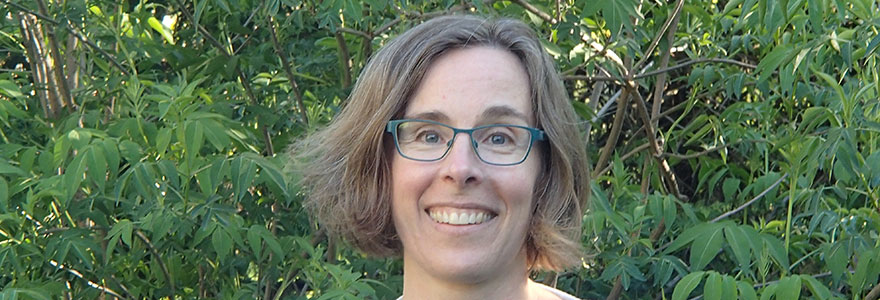News and Updates
Contact
Faculty of Social Science
Social Science Centre
Room 9438
Western University
T. 519-661-2053
F. 519-661-3868
E. social-science@uwo.ca
Digital project to bring cultural artifacts back to Inuvialuit
June 05, 2017
“This project is a way to help give back something that was taken away from Inuvialuit communities, and involve them in the process,” said Lisa Hodgetts, Associate Professor in the Department of Anthropology.
Hodgetts has received a $312,000 SSHRC grant, to support Co-creating Inuvialuit Digital Archaeology and Heritage.
Inuvialuit are the Inuit of Canada’s western Arctic. The grant will be used to digitize collections of artifacts and items removed from the Inuvialuit region and stored in distant repositories. Hodgetts and her project partners will work with Inuvialuit elders and knowledge holders, and “have them tell us (academics) how their story should be told,” said Hodgetts.
Hodgetts has worked in the region for the last decade, researching land-use change since people first settled in the area, around 3,600 years ago. In her time there, Hodgetts has established relationships with members of the Inuvialuit community, and developed a community-based approach to archaeological research in the region.
“We want to find ways to portray Inuvialuit ways of thinking and what it means to be Inuvialuit, online,” said Hodgetts. “It’s going to come back to the land. Tools are made from the land, used on the land. These items are important for Inuvialuit people because they embody their ancestors’ knowledge of being on the land.”
The project brings together many elements of a changing understanding and approach to cultural heritage.
Inuvialuit tradition says people should not disturb archeological sites. Despite this, generations of archaeologists have removed artifacts and other objects from Inuvialuit territory, often completing research that was never made available to the Inuvialuit community.
The Inuvialuit people are also dealing with a loss of some aspects of traditional knowledge and dwindling numbers of native Inuvialuktun speakers due to the lasting effects of the Residential School system and other colonial processes.
Recommendations from the Truth and Reconciliation Commission and the United Nations Declaration on the Rights of Indigenous People recognize the right to self-determination as it relates to cultural heritage.
By digitizing existing collections, and building an interactive system, the project partners want to help create a tool to strengthen and share the Inuvialuit culture.
“We want to frame it as much as possible in Inuvialuit ways of seeing world, which will set it apart,” said Hodgetts.
“There is so much in museums that hasn’t been looked at, and with community feelings against digging, there is a lot to be gained from working on these collections,” said Hodgetts.
Decisions on what will be digitized and shared, and how, will be made by Inuvialuit, with some items, such as traditional sewing patterns, not being shared with the outside community.
“We want to hear from Inuvialuit what they want to share about their culture and heritage, what it means to be Inuvialuit,” said Hodgetts. “It is a very interesting time to be doing this,” said Hodgetts. “The Government of Canada, the Northwest Territories and the Inuvialuit Regional Corporation have signed a self-government agreement in principle. Our work will allow us to provide policy input to Inuvialuit, Federal and Territorial heritage managers on the potential role for digital heritage in Inuvialuit self-government initiatives related to archaeology and cultural heritage.”
The project partners hope that making the collection available online will encourage interaction from people across the Inuvialuit region.
“There has been massive social change since Europeans arrived, but Inuvialuit culture is alive and well,” said Hodgetts. “We want to harness that energy.”
Hodgetts is working with partners across Canada, including: co-investigator, Natasha Lyons, Adjunct Professor in Archaeology at Simon Fraser University; Chuck Arnold, Retired Director, Prince of Wales Northern Heritage Centre; Sarah Carr-Locke, Director, Prince of Wales Northern Heritage Centre; Kate Hennessy, School of Interactive Arts and Technology, Simon Fraser University; Mervin Joe, Inuvialuit Knowledge Holder, Parks Canada, Inuvik; Sharon Thompson, Parks Canada, Winnipeg; and the Inuvialuit Cultural Resource Centre.

